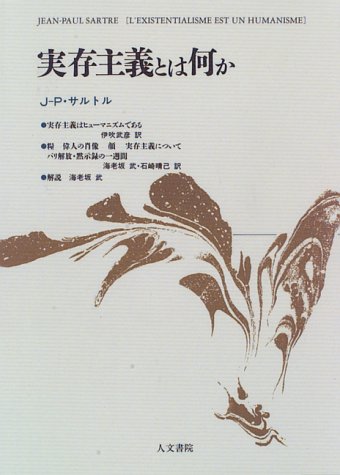- Published on
【Philosophy】Isn't the system causing people existential anxiety?
In a nutshell
- In modern society, where work is becoming increasingly systematized, people tend to suffer from existential anxiety (the anxiety of not knowing the meaning of life). In the wave of systematization, I see the mechanization of human beings in London born from the Industrial Revolution.
- In "What is Existentialism?", Sartre predicted the existential anxiety lurking in individuals in modern society, and Tetsushi Takimoto continued to tell young people how to confront existential anxiety.
- Systematization is a double-edged sword that can both create and destroy humanity. If so, I would at least like to try to do the former. Systematization should not be used to move people mechanically to increase productivity, but to create time to spend on creativity. I want to be aware of the impact that systems have.
The spread of existential anxiety in modern society and the aspects contributed by systematization
Modern society is a society where freedom and responsibility are forced upon us. Most things have become convenient, and people can freely enjoy their work and entertainment. On the other hand, enjoyment can be rephrased as coercion. People are free to choose how they live, but they have also "had to choose" how to live.
Especially now, in the information society, people can work from anywhere at any time using internet technology, and work has become even more efficient. The same goes for entertainment. You can enjoy videos and music from anywhere, and you can make plans to hang out with friends or go for a drink in a short amount of time. Lifestyles have also diversified. For those with ability, it should have become a world where it is easy to find a purpose in life and to live.
But with freedom comes competition. The right to freedom and the principle of competition as a side effect are conspicuously manifested in modern society by the wave of informatization. From an engineer's point of view, I am keenly aware that people who have lived their lives without being conscious of it are having their wealth skewed by the wave of informatization, and their own work is being secretly forced into mechanical tasks by informatization. If you are not careful, your job will be taken away or you will be incorporated into the system.
This phenomenon was also seen in the past during the Industrial Revolution, when industrialization progressed. In "The People of the Abyss - London 1902" (Iwanami Bunko), Jack London depicts the miserable situation of the working class who were incorporated into machines during the industrialization of the time. Children were forced to work long hours, and people who were forced to do inhuman labor drowned themselves in "gin," a cheap liquor invented at the time. It is an easy solution to existential anxiety. Many of you have probably seen William Hogarth's satirical print "Gin Lane."

In modern society, inhuman labor accompanying systematization is a pain, but so is leisure. In modern society, where a certain degree of livelihood is guaranteed, only life expectancy is mischievously extended, and there is more leisure time to vaguely think about one's own life, "What am I living for?" In ancient Greece, that leisure would have contributed to the development of philosophy, but how is leisure dissipated in the modern age? In the modern age, because the basic human rights of individuals are "for the time being" guaranteed (and also, for the time being, because anything can be done), relationships with others and society become complicated. Then, people worry. In the modern age, this "anxiety of not knowing the meaning of life" can be expressed in the world of philosophy as existential anxiety. It is a path that has already been predicted in the past.
In "What is Existentialism?", Sartre predicted the existential anxiety lurking in individuals in modern society, and Tetsushi Takimoto continued to tell young people how to confront existential anxiety.
It was the French philosopher Jean-Paul Sartre (1905-1980) who described existential anxiety as "man is condemned to be free." Sartre left behind the famous saying, "existence precedes essence." This is a warning against the habit of trying to determine the essence of a human being by labeling them, even though they certainly exist there.
In "What is Existentialism?", he contrasts the Christian worldview, which sees God as the center of the world and devalues human beings, with an atheistic, human-respecting worldview. However, he also touches on the responsibility that is a side effect of respecting human beings.

If existence precedes essence, then man is responsible for what he is.
<br/>
Therefore, the first procedure of existentialism is to make each person grasp what he is,
<br/>
and to make him bear full responsibility for his own existence.
In modern times, especially for young people, it is probably Tetsushi Takimoto (unknown-2019) who presented a way to confront the existential anxiety of modern society.
In "I Want to Hand Out Weapons to You" (Kodansha), he preaches the wisdom of "specialization" to confront society as an individual. This is also the logic of the strong.

Book title: I Want to Hand Out Weapons to You (by Tetsushi Takimoto, Kodansha)
Systematization is a double-edged sword that can both create and destroy humanity. If so, I would at least like to try to do the former.
Systems are a double-edged sword. Systematization can free people from busy work hours, but it can also drive people to unemployment. It can move people, but it can also trample on their hearts. Is the unawareness of how the systems we create can affect people exacerbating someone's existential anxiety? As I write this code, I take up my pen with a sense of self-admonition.
References
- Roughly what I want to say is the same as the "This is Water" speech. This is a graduation speech given by the American writer David Foster Wallace, who died suddenly in 2008, at Kenyon College in 2005, and it became more famous in the United States than Steve Jobs' speech at Stanford in the same year. A Japanese translation can be read from the link below, so please do so if you are interested.','https://j.ktamura.com/this-is-water (Japanese translation of This is Water)
- About Sartre',' "What is Existentialism?" (Sartre/Jinbunshoin)
- Sartre's philosophy is so difficult to read that you will definitely not understand it at first glance. You should first acquire a foundation in philosophy. Therefore, I recommend the following (don't be fooled by the "from 14 years old?").
- "Introduction to Philosophy from 14 Years Old: A Text for Living in the "Now"" (Incha/Futami Shobo)
- Sartre's philosophy is so difficult to read that you will definitely not understand it at first glance. You should first acquire a foundation in philosophy. Therefore, I recommend the following (don't be fooled by the "from 14 years old?").
- About Tetsushi Takimoto',' A person who consistently conveyed to young people how to confront modern society. It is regrettable that he passed away the other day. If I had to name one, it would be the following. I want to thank the person who introduced me to this book when I was in college.',' "I Want to Hand Out Weapons to You" (Tetsushi Takimoto/Kodansha)
- A reportage depicting the miserable working class in London during the Industrial Revolution. My other motto, "Cool Head, Warm Heart" (economist A. Marshall), was also born during this period.',' "The People of the Abyss - London 1902 (Jack London/Iwanami Bunko)"
Aside (Recommended Book)
A recommended design book. It's packed with design tips that you can use forever. I use it often myself.

